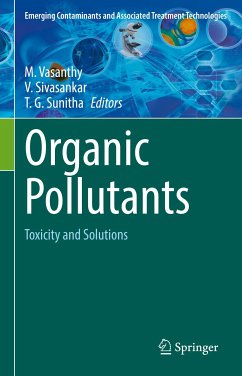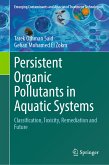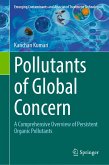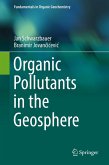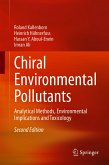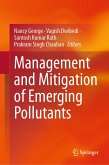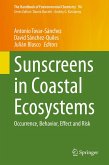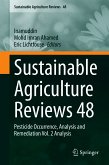This volume describes the identification of emerging organic pollutants, mainly from industrial sources, their associated toxicological threats, and the latest green methods and biotechnological solutions to abate harmful impacts on people and the environment. The chapters present reviews on current applied toxicology research, occupational health hazards and green remedial solutions for pollution control in terrestrial and aquatic environments, with the aim of raising public awareness of these issues and providing chemists, toxicologists and environmental scientists with the knowledge to combat organic pollutants through sustainable means. Readers will learn about the multi-dimensional applications of materials and processes which harvest energy out of environmental remediation technologies, as well as the roles of biotechnology and nanotechnology in addressing high pollutant load. Specific attention is paid to technologies that draw energy through wastewater remediation, as this covers the primary means by which organic pollutants are introduced into the environment from industry and other sources. The book will be of use to pollution control boards, industry regulators, and students and researchers in the fields of biotechnology, biomedical science, hydrology and water chemistry.
Dieser Download kann aus rechtlichen Gründen nur mit Rechnungsadresse in A, B, BG, CY, CZ, D, DK, EW, E, FIN, F, GR, HR, H, IRL, I, LT, L, LR, M, NL, PL, P, R, S, SLO, SK ausgeliefert werden.

